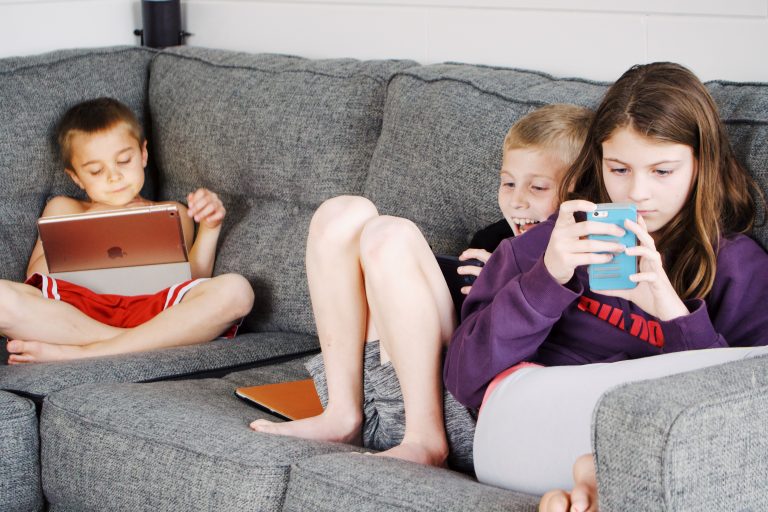
By SWNS Staff
The majority of American parents are worried about the long-term social effects of the pandemic and too much screen time on their child’s development, according to new research.
A new survey polled 2,000 American parents of school-aged children and found 81% are worried about the lasting impact the pandemic may have on their child’s social development.
And with all this time spent at home during the pandemic, 64% of parents are concerned too much screen time can make social development harder for their child.
The top social skill parents believe are affected by too much screen time is the ability to make friends in new social settings (39%), followed by conflict resolution (27%) and the ability to share with ease (26%).
With all of this in mind, it’s no wonder 42% of respondents believe the pandemic has negatively impacted their child’s social development.
Conducted by OnePoll on behalf of MindWare, the survey also found 63% of parents are often struggling to find a mentally stimulating activity for their child to do while at home.
As families reflect on the past year hunkering down during the pandemic, nearly half (47%) of parents surveyed have noticed their child lose interest in their favorite activities due to the stress of the COVID-19 pandemic.
Internet safety is a strong concern as well, with four in 10 parents admitting they feel like they never really know what their child is doing on a digital device.
The average parent asks their child to put down a device and do something more mentally stimulating an average of seven times a week.
Sixty-three percent of parents polled have household screen time limits as well – limiting their child to an average of four hours a day on a screen.
The top reasons parents have screen time limits in their homes included wanting their child to be more physically active (70%) and spend more quality time with the rest of the family (60%).
Forty-five percent of parents that use screen time limits in their homes also want their children to use more time thinking creatively and using their imagination.
In fact, 86% of parents surveyed said they hope their child never loses their creative spark.
“Heavy screen-time can also restrict hands-on learning and exploration while limiting lessons in real-life problem solving,” says Jonathan Staruck, Vice President and General Manager for MindWare. “Children can find just as much enjoyment out of non-digital activities like with STEM toys, cool science kits or arts and craft kits.”
Despite these desires for their children to spend less time on digital devices, parents say the top playtime activity for their children was playing video games – regardless of age.
As parents reflected on their children’s playtime activities, 68% said they feel like kids today aren’t as imaginative compared to when they were kids and 67% shared the same sentiment regarding their children’s social skills.
“Social-emotional skills are gained through in-person interaction and working together with others,” says Staruck. “Educational toys and games are one of the best ways, and definitely the most fun, to teach a child social skills and ignite their creativity. Things like active play toys and strategic and cooperative games are all easy and enjoyable ways to make small shifts away from digital drain and pandemic boredom.”
TOP REASONS FOR SCREEN TIME RULES
- I want them to be more physically active – 70%
- I want them to spend more quality time with the rest of the family – 60%
- I want them to use more time creatively thinking and using their imagination – 45%
TOP SOCIAL SKILLS AFFECTED BY TOO MUCH SCREEN TIME
- Making friends in new settings – 39%
- Conflict resolution – 27%
- Sharing – 26%
- Playing by the rules in groups – 25%
- Empathy for others – 23%
- Team Building – 21%



















